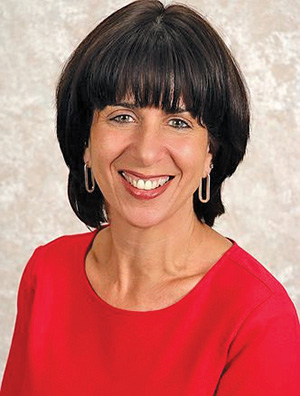
Everyone loves the idea of magic. Most of us discover the delights of magic very early on in life. Have you ever played peek-a-boo with a baby? For those who haven’t been around a baby in a long time, this is how the game works. The baby stares at your face, you cover your face with your hands, and then you open your hands to reveal your face to the baby. Though not a very exciting game for anyone over the age of 1 year or so, to a baby it is a magical experience; one minute you are in front of them, the next minute you disappear, and then you magically reappear. This causes laughter from a baby, which causes those watching to smile and laugh in turn. As the baby matures, his or her brain will be able to understand the concept of object permanence and, with that realization, the magic of peek-a-boo ends.
As adults, many of us are still in search of something magical to help us deal with both the serious and the not-so-serious problems in life. The marketing industry understands this and therefore creates ads that appeal to the magical thinking part of our brains. Both professionals and pseudo-professionals take advantage of our vulnerability and broadcast promises that they can make us look younger, feel stronger and lose weight, can help us learn a foreign language with ease or earn lots of money without much effort, and can cure diseases from athlete’s foot to cancer.
As an oncology nurse for many years, I encountered many intelligent, well-educated people who were taken in by someone offering magical cures for cancer. Treatments like vitamin therapy, yoga and various forms of meditation, all offered in a spa-like facility, have much greater appeal than chemotherapy in a cancer hospital. While different people have certainly benefited from these and other unconventional therapies, I unfortunately met many of these patients once their cancer had progressed to an advanced stage. In more than a few cases, these were cancers that could potentially have been cured had the patient come in earlier for treatment.
When my own son was diagnosed with autism, I tried every treatment offered to me. Some yielded results—usually those that involved evidence-based research. I will never forget the words of a woman offering “magic”—she said that if I did a certain type of therapy with him consistently, by the age of 12 my son would not have any signs of his disability. I remember how seductive those words were—a possible cure for an incurable disability! I so wanted to believe her, even though I knew that what she was saying was not based on science or evidence and did not have any possibility of being true.
If you have ever tried something that seemed “too good to be true,” you are not alone. The American Psychological Association estimates that over 30 million people in America are taken in by some type of unrealistic “promise.” Studies have investigated what type of person is most likely to fall for “magic”; it turns out that we all are! Victims include the young and the not-so-young, the educated and the uneducated, and both blue- and white-collar workers. Who we are and where we are in life makes each one of us vulnerable to the possibility that a particular ad may actually be accurate and its promises true.
Like many people, I receive almost daily emails about how I can make who knows how many dollars a week while never leaving home. I immediately move those ads to the trash and yet I must admit, my eye is drawn to them, as it is to cosmetic creams that promise to make me look 10-20 years younger. Intellectually, I know there are no creams that can take 20 years of sunning and living off of one’s face, but I would certainly like it to be true, so I read and re-read the ad, and once I even purchased some of the creams. Shockingly, I don’t look any younger.
The diet industry is also full of magical promises. Some of you may remember a product that guaranteed that with it you could lose weight while still eating everything you wanted and never exercising. All you needed to do was sprinkle some magical powder on your food and the pounds would just disappear. It sounded great and we all wished it worked, even though our brains shouted “not possible!” The company that manufactured the magical powder was eventually sued for faulty advertising and the product was discontinued.
“Dr. Oz” is a man whom many people trust. He is a smart, well-trained cardiothoracic surgeon famous for promoting many health products and diet aids. In 2015, Dr. Oz appeared before Congress in a consumer protection hearing. He was charged with sharing unproven medical claims and endorsing ineffective weight-loss supplements. These hearings were very public, and yet, today, if he or someone like him advertises a fast weight-loss product, millions of people are willing to try it.
Unfortunately, there is very little magic in the real world. Serious diseases need to be treated by serious medicine and complemented with evidence-based support and therapies. Health and wellness takes time and a great deal of effort. There aren’t any real shortcuts. You need to sleep seven to eight hours a night, drink water, eat nutritious, whole foods, exercise, laugh, smile, spend some time outdoors and have meaningful relationships. If you incorporate all of these factors into your life, the results can indeed be magical!
By Beth S. Taubes
Beth Taubes RN, OCN, CBCN, CHC,CYT, is the owner of Wellness Motivations LLC. She motivates clients of all backgrounds, ages, and health conditions to engage in improved self-care through nutritional counseling, fitness training, yoga practice, and stress reduction techniques. Sign up for “Get Fit This Summer” program. Gift Certificates available. Beth can be reached at [email protected] or wellnessmotivationsbt.com.










